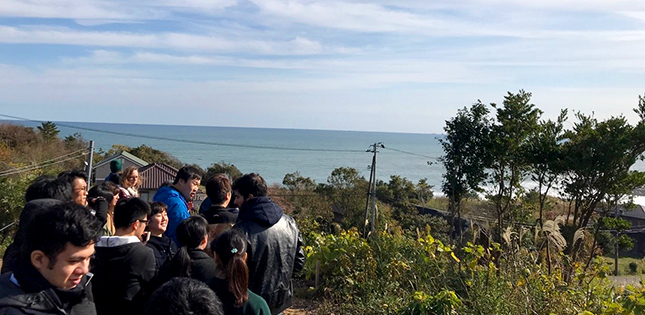One of the best ways to learn is through giving back, and Tohoku University offers many opportunities for students to volunteer, to make a difference to the lives of people less fortunate, and to gain a better understanding of the communities in the region.
One of the most active student-run volunteer groups is SCRUM, which organizes activities year round, especially in towns and cities affected by the 2011 Great East Japan Earthquake and tsunami.
Recognising the value of having diverse ideas, opinions and cultural influences, SCRUM has been encouraging more international students to get involved. Two of the group's leaders - Miori Asaka and Yudai Nagoya - spoke recently about ways multiculturalism makes many things better.
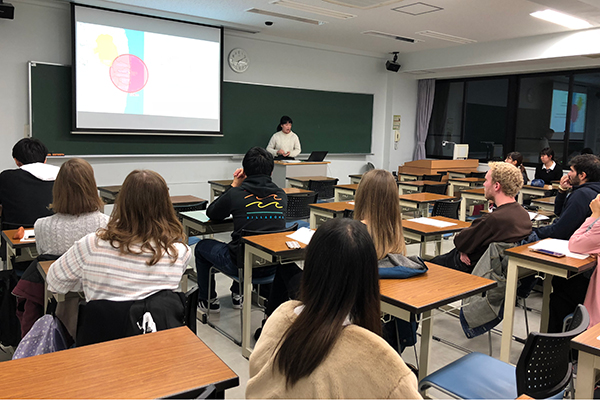
How can international students contribute to the volunteer culture at Tohoku University?
The local people we visit usually don't get to meet foreigners, so it's a different and interesting experience for them when we have international students in our group. It's also a way for us to show the locals affected by the disaster that there are people outside Japan who care about them.
For the international students, they get to see for themselves the impact of the 2011 disaster and hear from the people directly affected. They can then share their experiences with their family and friends back home.
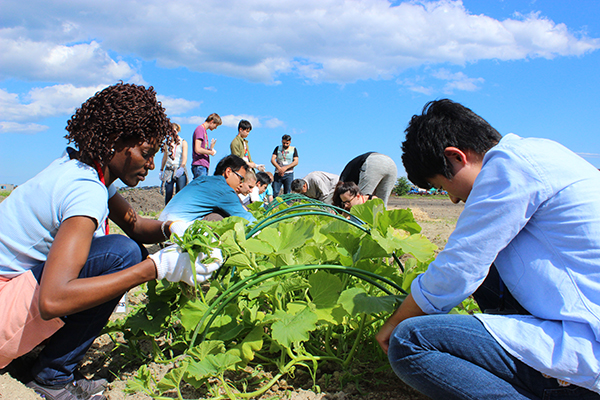
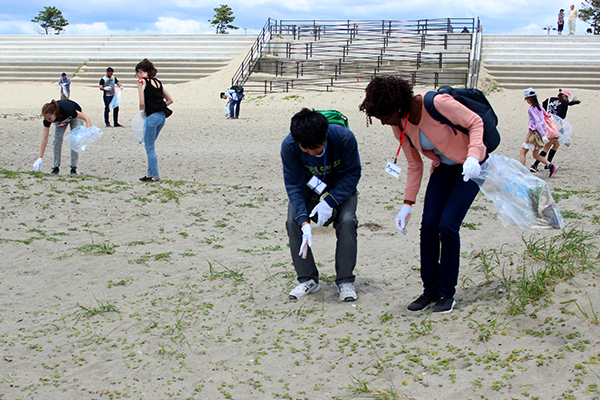
What's a recent activity where multiculturalism played a key role?
There's a programme called Humans of Minamisanriku which students from Tohoku University and Baylor University in the US did together last summer. We interviewed people who are involved in the recovery efforts in Minamisanriku, and we made a short video in Japanese with English subtitles.
We felt that the programme was successful because the cultural mix between the two groups of students made the discussions better.
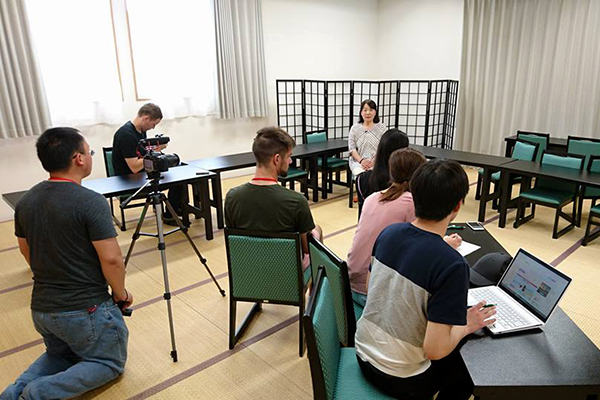
What are some of the different types of volunteer activities that SCRUM organizes?
There are three main groups in SCRUM doing volunteer work in different parts of Tohoku. There's Inkstones in Ishinomaki city (Miyagi), Pocapoca in Rikuzentakata city (Iwate) and Fukko-youth in Fukushima.
These three groups hold small events at temporary housing projects and public apartments for local people to come out and enjoy themselves. We also visit areas that are completely destroyed, listen to the story tellers, to learn more about what had happen and what is still happening there. We also help out at local festivals that need extra pairs of hands.
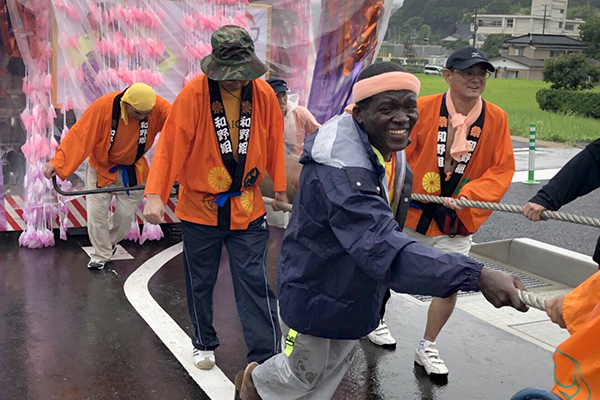
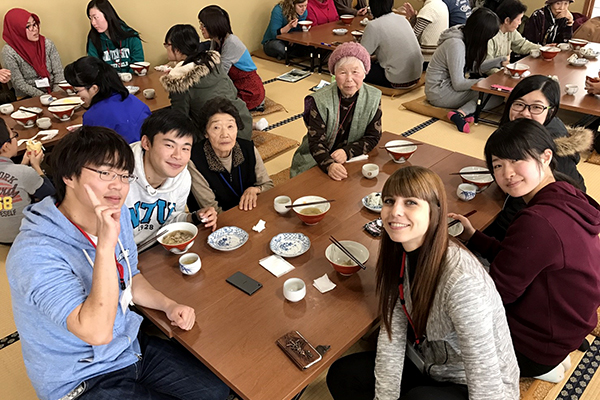
Apart from these three main groups, there are others in SCRUM that do a different kind of outreach. Moshitosa, for example, works on disaster prevention in Kochi prefecture, where there's a possibility of a big earthquake in the near future.
Hitotomo is a group focused on human right issues, such as poverty among children in Japan. Last year this group volunteered at free schools and served food to kids in cafeterias. And Chiiki Kyousoubu is a group which tries to rejuvenate the Namiita area in Ishinomaki where aging population is a serious problem.
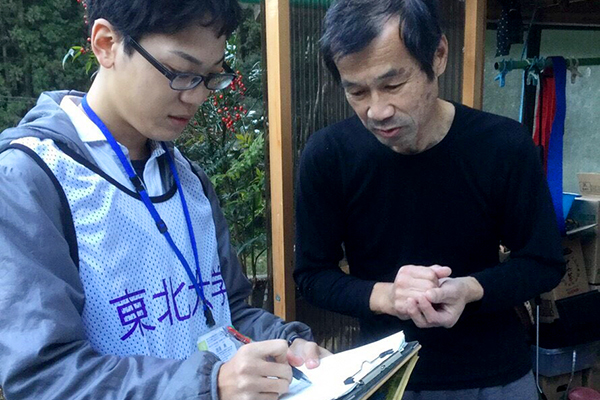
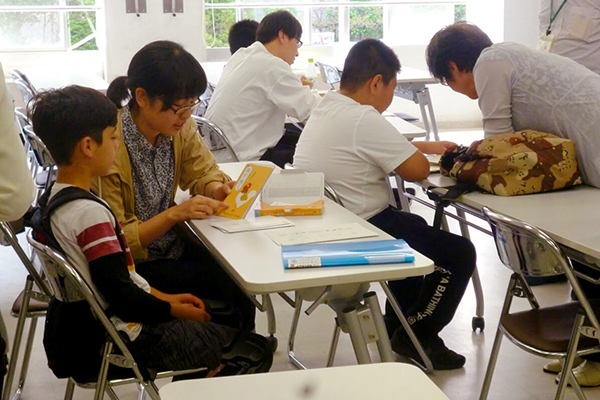
Where can people go to check for a list of upcoming events?
We put flyers up around campus, and we have a mailing list that anyone can join. Students can also attend our Volunteer Fair, which takes place twice a year, or follow us on social media. SCRUM has English language support for some activities, but all students are welcome to join us anytime as long as they are comfortable interacting in basic Japanese.
We are currently putting together an overnight volunteer trip to Minamisanriku next February. The plan includes listening to stories from Seietsu Sato, who was the leader of the firefighters in Kesennuma at the time of the 2011 disaster. We also plan to visit Togura kindergarten to do some activities with the kids.
We always encourage participants on our tours to engage with the locals, listen to the real voices of the people who had experienced the tsunami and the earthquake, and understand how the disaster has affected their lives. As volunteers, we want to contribute, but we also hope our members learn something meaningful from the experience.
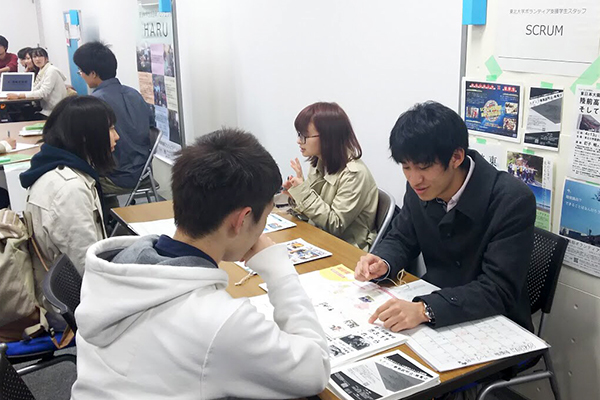
Contact:
SCRUMTohoku University Volunteer Support Center
Email: vol.tohoku.univ
 gmail.com
gmail.com
